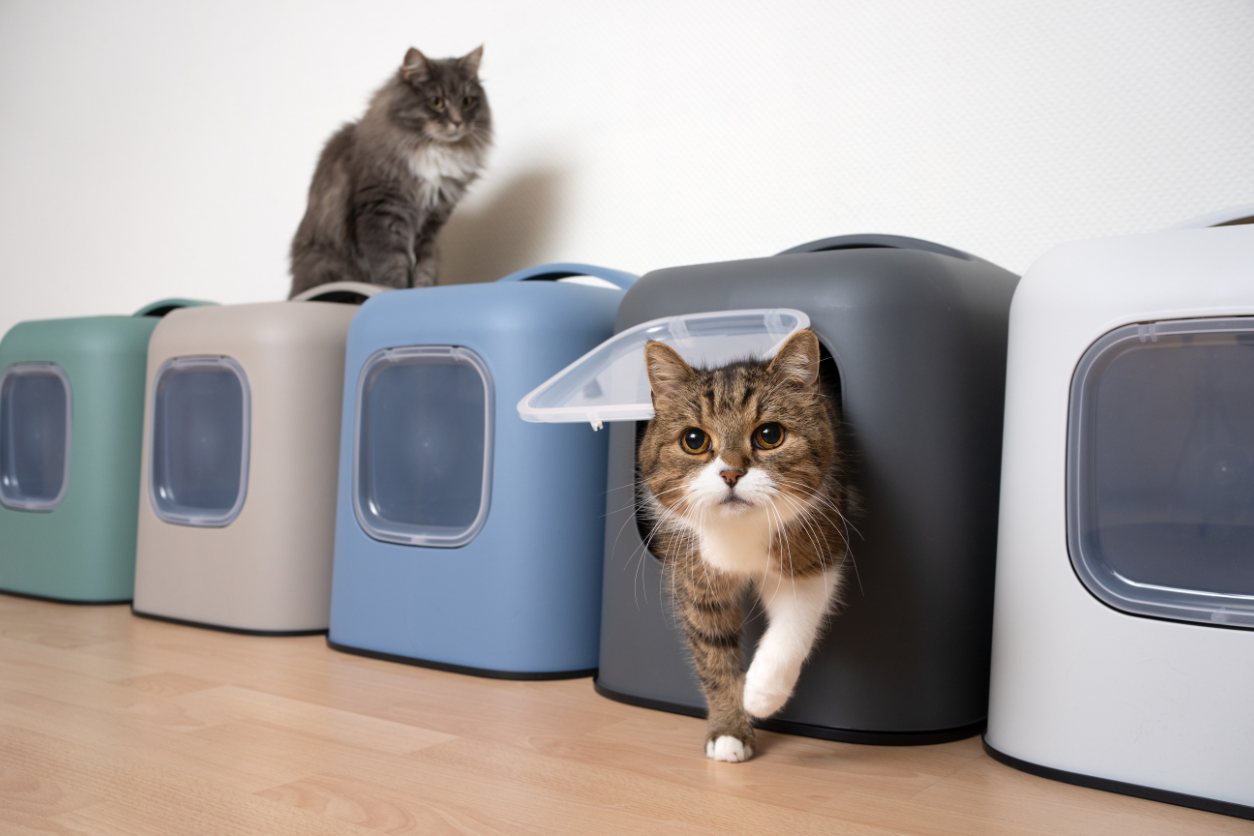How Many Litter Boxes per Cat? A Guide to Litter Box Placement and Training

Ensuring your cats have clean and accessible litter boxes is a fundamental part of responsible pet ownership. However, one common question that often arises is how many litter boxes should you have per cat. While the answer may vary depending on factors like the number of cats in your household and their individual preferences, providing the right number of litter boxes is crucial for maintaining your cats’ hygiene and well-being.
In this comprehensive guide, we’ll delve into the considerations for determining the ideal number of litter boxes, proper placement, and effective training techniques. By understanding your cats’ needs and behaviors, you can create a comfortable and stress-free environment that promotes good litter box habits.
The General Rule of Thumb
The general guideline for how many litter boxes you should have per cat is one box per cat, plus one extra. For example, if you have two cats, you should ideally have three litter boxes. This ensures that each cat has access to a clean box at all times and reduces the likelihood of territorial disputes or litter box avoidance. Distribute the litter boxes in different areas of your home to provide your cats with options and prevent overcrowding in one location.
Consider Your Cats’ Preferences
Just like humans, cats have preferences when it comes to their bathroom habits. Some cats may prefer covered litter boxes for privacy, while others may feel more comfortable in open ones. It’s essential to observe your cats’ behavior and adjust accordingly. You can also choose to get self-cleaning litter boxes to make cleaning easier and less time-consuming.
Multi-Level Homes
If you live in a multi-level home, it’s crucial to have litter boxes on each floor. This accessibility ensures that your cats don’t have to travel far to find a suitable place to relieve themselves. Consider placing a litter box on each floor near a quiet and low-traffic area, ensuring that your cats can reach it easily.
Kittens and Senior Cats
Kittens and senior cats may require special consideration. Kittens may not be able to navigate long distances, so it’s vital to have litter boxes readily available in their play and rest areas. Similarly, senior cats may benefit from easy access to litter boxes, especially if they have mobility issues. For these cats, choose low-sided boxes that are easy to step into.
Monitoring Litter Box Usage
Keep a close eye on your cats’ litter box habits. Any changes in frequency, consistency, or signs of discomfort can be indicators of potential health issues. If you notice any deviations from their usual behavior, consult your veterinarian. For multi-cat households, it’s important to observe their interactions around the litter boxes to ensure that all cats have equal access and that there are no territorial conflicts.
Training Techniques
Proper litter box training is essential, especially for kittens or cats transitioning to a new environment. Provide positive reinforcement by praising them when they use the litter box correctly. You can even use treats to help. During the training period, keep the litter boxes in easily accessible locations to prevent any confusion or accidents. Avoid punishment for accidents as this can deter cats from using the litter in general.
Final Note!
Understanding how many litter boxes per cat is ideal for your household and placing them strategically can greatly contribute to your cats’ comfort and hygiene. By observing their preferences, considering factors like age and mobility, and providing consistent training, you can create a cat-friendly environment that promotes good litter box habits. Remember, each cat is unique, so staying attuned to their individual needs is key to maintaining a clean and stress-free living space.
Your Pet’s Best Interest, Always
At Pet Institute, we take pet care seriously. We're dedicated to transparency, impartiality, and the well-being of your pets in every article, review, and recommendation we provide. Our unwavering commitment to these principles ensures that you, our valued reader, always receive reliable and unbiased information. Let us be your trusted guide in the world of pet care and companionship.